speakers
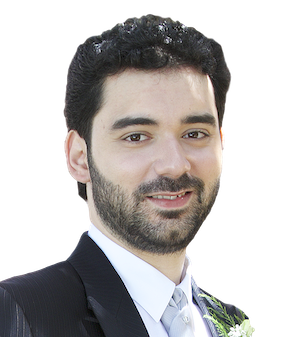
Alessandro Bria, University of Cassino and Lazio Meridionale
Biography: Alessandro Bria received a MSc degree in Computer Engineering from the University of L’Aquila in 2010 and a Ph.D. Degree in Electrical and Information Engineering from the University of Cassino in 2014. In 2019 he joined the Department of Electrical and Information Engineering (DIEI) at the University of Cassino and Southern Lazio, where is now an Associate Professor in Computer Science and Artificial Intelligence. He has authored over 60 International Journals and Conference Proceedings research papers. He is a member of the editorial board of the journals “Frontiers in Artificial Intelligence” and “Frontiers in Big Data”, and of the International Association of Pattern Recognition (IAPR). His current research interests include medical image analysis (breast mammo/DBT, lung CT, brain MRI), EEG signal analysis, and unstructured EHR analysis. He is co-inventor of TeraStitcher and TeraFly for reconstruction and assisted visualization of terabyte-sized microscopy images.
Lecture: From Architectures to Biomedical Applications
This seminar provides an overview of modern Deep Learning, covering both its fundamental architectures and their impact on real-world biomedical applications. Starting from artificial neural networks, the talk introduces convolutional neural networks for classification, detection, and segmentation tasks, as well as graph neural networks for structured data modeling. It then focuses on attention-based models, including Transformers, Large Language Models (LLMs), and Vision-Language Models (VLMs), before exploring diffusion models for generative and guided inference. Throughout the seminar, recent biomedical applications are discussed across the different topics, highlighting how architectural advances translate into practical solutions for medical imaging and healthcare.

Bjorn Schuller, Technische Universität München
Biography: In my research I develop machine learning methods to understand factors that contribute to (mental) health problems in individuals. I hold a PhD in neuroscience from the Radboud University and have been working as a Postdoc in Netherlands (Radboud University), researcher in Norway (University of Oslo), and visiting scholar in the United Kingdom (University of Oxford) before starting my research group in Tübingen (Germany). In the long run, I aim to implement technological developments into clinical practice working together with clinicians and researchers. Outside of the lab, I study yoga, meditation and enjoy reading but also like social activities and music.
Lecture: A Guided Safari Through the Time-Series Modelling Zoo for Health
Healthcare and life-science data mostly arrive as sequences: vital-sign streams, ICU waveforms, wearable data and multimodal signals such as speech and movement, longitudinal lab data, and patient journeys in electronic health records. This lecture is a guided “safari” through the time-series modelling zoo—designed to choose the right model family sensibly for real health problems. We start in the “classic enclosure” with alignment and similarity methods, including Dynamic Time Warping (DTW) and common variants, followed by probabilistic sequence models such as Hidden Markov and Graphical Models (HMMs and GMMs). We then visit neural sequence learning with RNNs, LSTMs, and modern extensions such as xLSTMs. Next, we move to the attention habitat—Transformers for continuous signals and patient trajectories—covering key design choices for temporal encoding, tokenization/patching, and multimodal fusion. Finally, we explore the “new arrivals”: state-space models and efficient long-context sequence modelling for high-frequency signals and long patient histories. We will be emphasizing practical challenges that dominate healthcare data: irregular sampling, missingness, limited labels, and likes. Rather than treating this as a mere model parade, the session is anchored in recurring healthcare tasks—early warning and deterioration prediction, forecasting, monitoring, and personalized prediction. You shall leave with a coherent map of the landscape and a practical decision framework for selecting and validating time-series models in health and life-science applications.
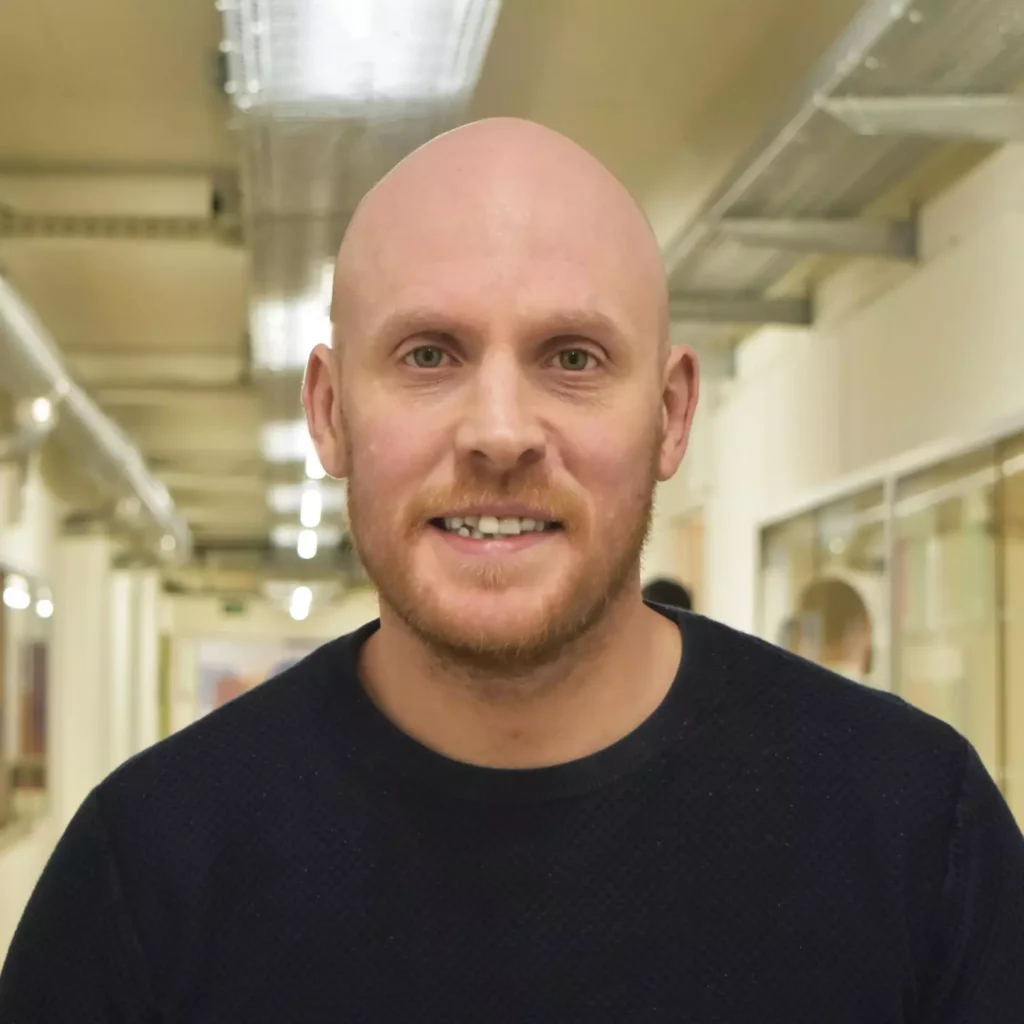
Paul Queen, Vrije Universiteit Brussel
Biography: Paul is a Law Professor at the Vrije Universiteit Brussel (VUB – Free University of Brussels). He is an expert in legal and ethical issues related to the use of health data. His expertise includes data protection, privacy issues, AI, and the secondary use of health data. He also completed his PhD on issues related to stigmatization and discrimination. At the VUB, he founded the Health and Ageing Law Lab (HALL). He coordinates research on such issues through a range of international and national consortia. He has successfully secured participation in numerous research projects as an expert on legal and ethical issues related to privacy and data protection. Paul is also a member of the University’s Ethics Board for Research in the Social Sciences and the University Hospital Medical Ethics Commission. Before entering academia, Paul worked in the legal industry in the UK. He trained as a Barrister (Bar of England and Wales) and is a member of Gray’s Inn. He holds degrees in European and International Law (LLM, Institute of European Studies, Brussels), Law (MA, University of Sheffield), and Biochemistry (University of Sheffield). Paul is an Irish citizen and has lived in Ireland, the UK, and Belgium.
Lecture: Legal and Ethical Issues Associated with the Use AI in Healthcare
TBD

Florin-Cristian Ghesu, Siemens Healthineers
Biography: TBD
Lecture: AI in the Healthcare Industry
TBD
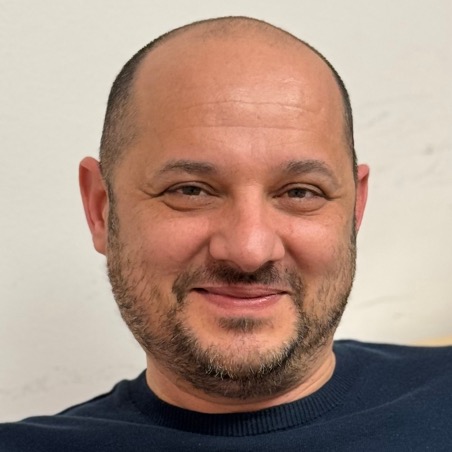
Concetto Spampinato, University of Catania
Biography: Concetto Spampinato earned his Laurea degree and completed his PhD in Computer Engineering at the University of Catania in 2004 and 2008, respectively. He currently serves as an Associate Professor at the same institution. He spent a research term at the University of Edinburgh during 2008- 2009, concentrating on object detection and recognition. Since October 2016, he has been a Courtesy Faculty member at Center for Research in Computer Vision at the University of Central Florida. Dr. Spampinato’s research focuses on learning-based computer vision and pattern recognition, especially using deep learning techniques. In 2014, he founded the Pattern Recognition and Computer Vision Laboratory at the University of Catania. He has authored over 200 publications and led various EU, national, and regional projects on foundational AI and its applications.
Lecture: Advancing Vision: Models, Tuning, and Generative Breakthroughs
Foundation models have revolutionized computer vision, with Vision Transformers (ViTs) emerging as a cornerstone in understanding and manipulating visual data. This talk explores the evolution and impact of ViTs and other transformative architectures, highlighting their effectiveness in tasks such as image classification, object detection, and semantic segmentation. The discussion extends to foundation generative models, particularly diffusion models, which have fundamentally changed image generation by iteratively refining predictions. We delve into their principles and showcase their applications, emphasizing their role in enhancing creativity and fidelity in visual content creation. Furthermore, the presentation introduces techniques like prompt tuning that enable optimizing foundation models—such as ViTs and others—for specific downstream applications, without extensive re-training. Through these insights, this talk provides the latest advancements in foundation and generative models, underscoring their potential to reshape computer vision paradigms and catalyze new possibilities across diverse fields and applications.
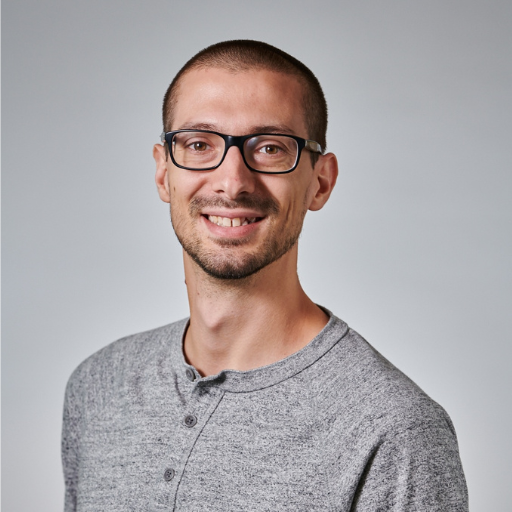
Enea Parimbelli, University of Pavia
Biography: Enea Parimbelli is associate professor of biomedical engineering at the Department of Electrical, Computer and Biomedical engineering at the University of Pavia (Italy). Enea’s research revolves around biomedical applications of AI, decision support, health informatics, e- and m-health. Enea thoroughly enjoys scientific research and teaching, interdisciplinary work and cross-pollination between fields, which are the main drivers for his willingness to work in biomedical research. In his free time Enea is also a fish-geek, enjoys beach- and indoor volleyball, good books and weird movies.
Lecture: Large Language Models for Clinical Decision Support
TBD

Floriano Caprio, HCLTech
Biography: TBD
Lecture: Advancing Vision: Quantum AI
TBD
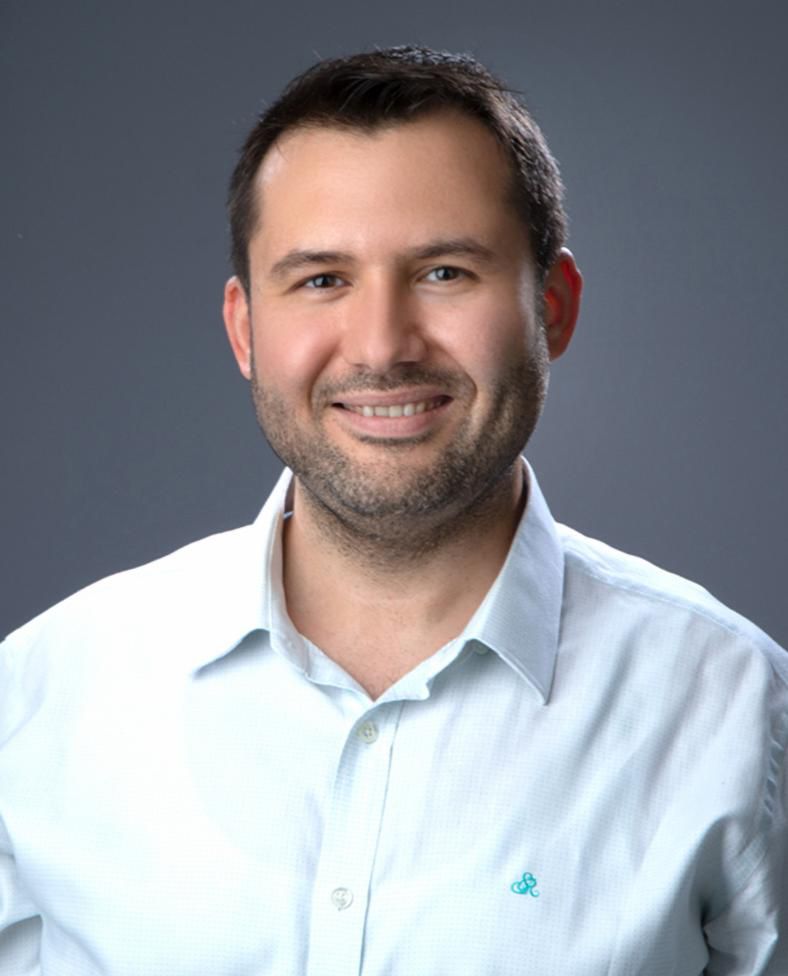
Eyup Cinar, Eskisehir Osmangazi University and NVIDIA University Ambassador
Biography: Dr. Eyup Cinar is an Associate Professor in the Department of Computer Engineering at Eskişehir Osmangazi University (ESOGÜ), Türkiye. He earned his PhD in Microsystems Engineering from Rochester Institute of Technology (RIT), USA. With significant industry experience in the United States, he served as a Senior Engineer at GLOBALFOUNDRIES and later as a Senior Data Scientist at ASML-HMI in Silicon Valley.
Dr. Cinar is an NVIDIA University Ambassador and a certified instructor for the NVIDIA Deep Learning Institute (DLI), delivering workshops and certifications in deep learning and AI. He is also a PyTorch Ambassador and affiliated with nonprofit academic organizations for disseminating PyTorch. His research interests center on AI-based methods, including deep learning, machine learning, and data science, applied to intelligent systems.
Lecture: NVIDIA workshop on Rapid Application Development with LLMs and a Medical Use-case
Recent advancements in Large Language Models (LLMs) are transforming many sectors including Healthcare and Medicine. This hands-on workshop offered by NVIDIA sponsored curriculum is designed to help developers quickly build and deploy LLM-powered applications by leveraging the vast open-source ecosystem. Participants will explore the full development lifecycle, from understanding transformer architectures and tokenization to implementing sophisticated agentic workflows. The workshop will finish with a medical expert system use-case demonstration.
The session aims to provide practical experience for developers with the Hugging Face Transformers API for tasks such as semantic analysis, zero-shot classification, and question-answering. Beyond text, attendees will delve into multimodal architectures—including CLIP and diffusion models—to integrate images and audio into their AI workflows. Finally, the workshop covers advanced orchestration using LangChain and LangGraph to build environment-aware agents capable of executing complex, real-world tasks.
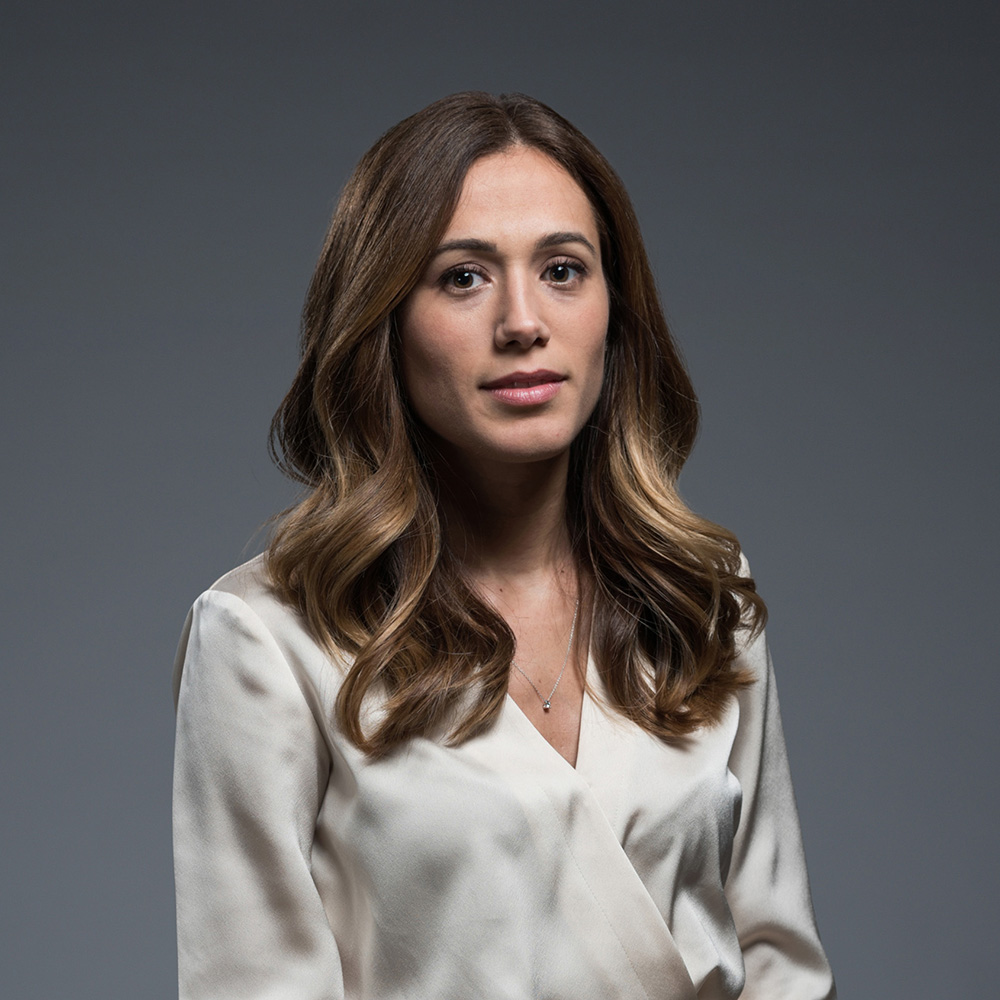
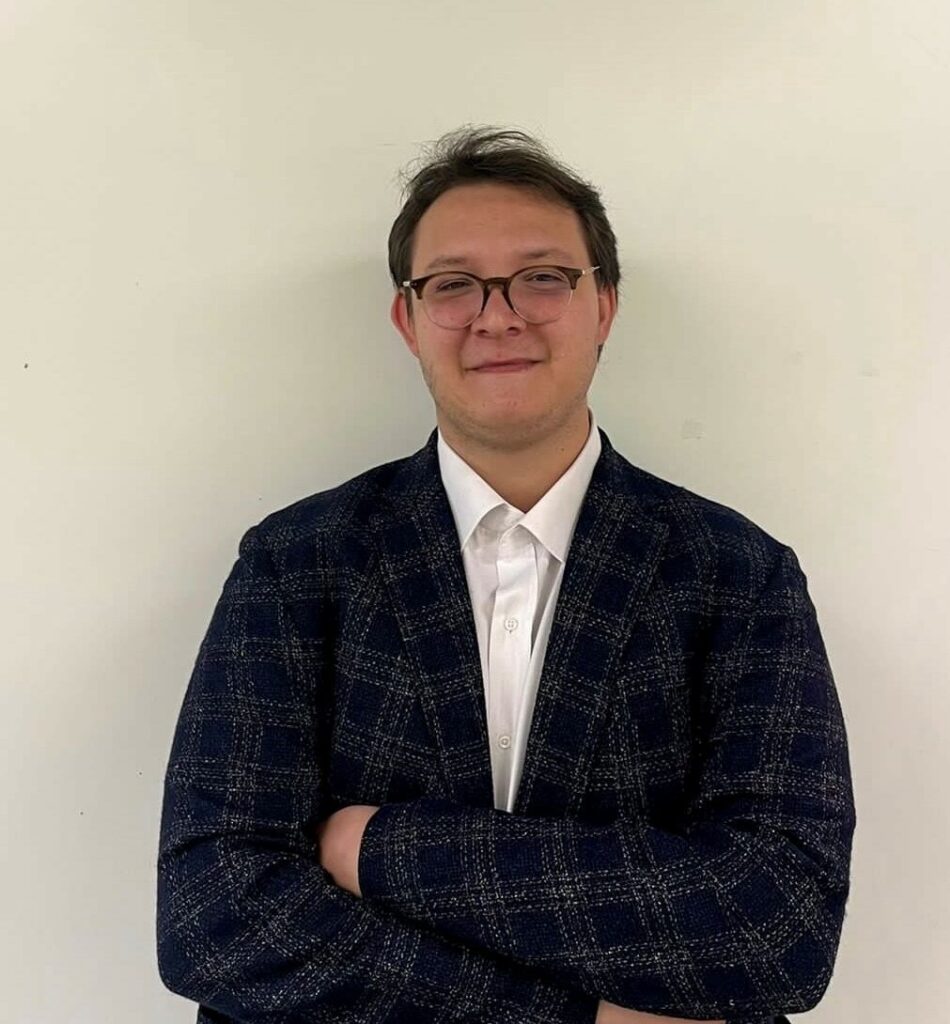
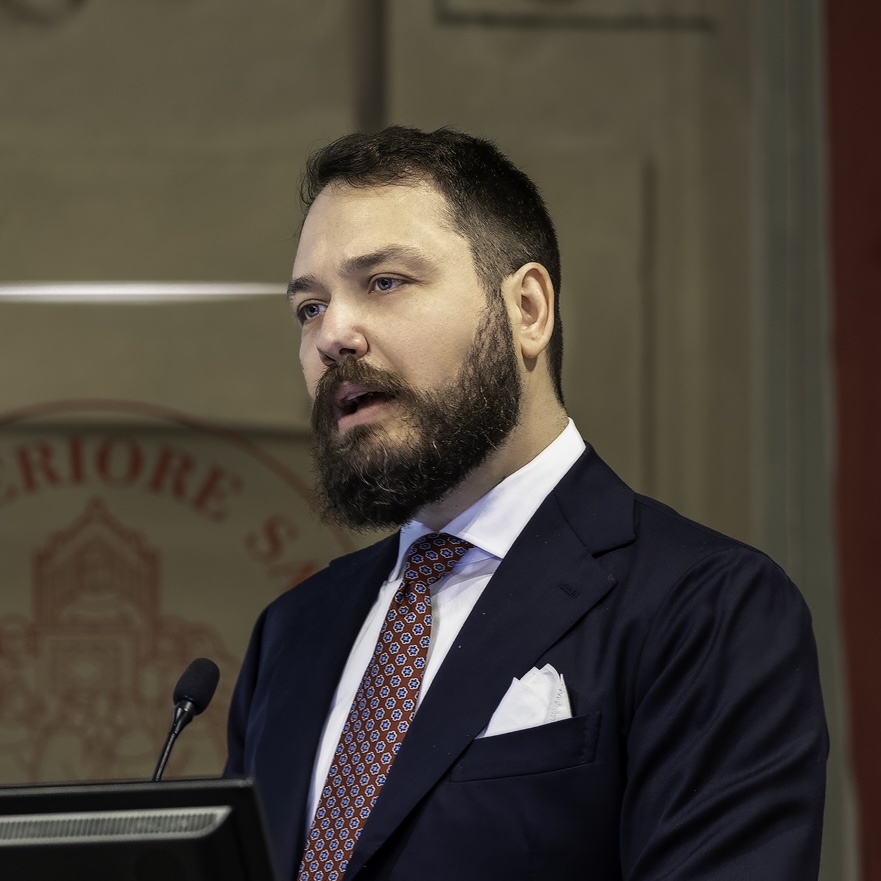
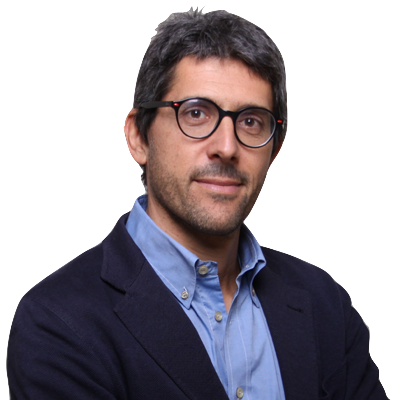



Francesca Cordova, Legance
Biography: Francesca Cordova is a litigation and arbitration lawyer focusing on industrial and intellectual property law and unfair competition. Francesca assists clients on strategies of the IP rights protection and in drafting and negotiation contracts concerning every form of exploitation of IP rights and technology transfers, with particular focus on issues relating to trademarks, patents, copyright, trade secrets and new technologies (Blockchain, NFTs, Artificial Intelligence, IoTs). In addition, Francesca provides assistance in the life science & pharma sector, with a focus on contractual issues related to the pharmaceutical and cosmetics industry, research and development agreements, patent and know-how licensing agreements, and copyright issues related to scientific material. Finally, Francesca has gained experience in assisting and representing Italian and foreign clients in litigation proceedings (preliminary, on the merits and before arbitration panels).
Giuseppe De Ruvo, Università Vita-Salute del San Raffaele
Biography: Giuseppe De Ruvo is a doctoral candidate in moral philosophy at the University Vita-Salute del San Raffaele in Milan and a contributor to Limes, an Italian journal of geopolitics. In addition to teaching at the aforementioned university, his work focuses on critical theory of digital capitalism, the relationship between philosophy and geopolitics, and Sino-American technological competition. In addition to several articles in Italian and international scholarly journals, his publications include From Hegel to TikTok. Metaphysics and Geopolitics of Digital Capitalism (Ebs, 2022) and History and Philosophy of Geopolitics (Carocci 2024). He is currently editing the first Italian translation of Henry Kissinger’s Thesis on The Meaning of History. Reflections on Spengler, Toynbee and Kant (Mimesis). Accelerating the Collapse will be published by Mimesis in 2025. TikTok and geopolitics as a critique of life forms. In 2026, however, the monograph Elon Musk. Philosophy, Geopolitics, Industry.
Andrea Bertolini, Scuola Superiore Sant’Anna
Biography: Andrea Bertolini is a Professor of Private Law at Scuola Superiore Sant’Anna (Pisa) where he coordinates the Centre on the Regulation of Robotics and AI (EURA). He is an expert advising European institutions on a number of issues about technology regulation, including civil liability, product safety, consent and various aspects of techno-ethics. Andrea is also an Attorney licensed to practice in Italy and New York.
Paolo Soda, Università Campus Bio-Medico di Roma
Biography: Paolo Soda is a full Professor of Computer Science and Computer Engineering at University Campus Bio-Medico di Roma, and he is a Visiting Professor in AI and Biomedical Engineering at the Department of Diagnostics and Intervention, Umeå University, Sweden. He is the coordinator of the Italian National PhD program in AI, Health and Life Sciences area (XXXIX and XL cycles). He is an expert in AI: his research interests include multimodal (deep) learning, generative approaches, eXplainable AI, and resilience of AI algorithms. His research is applied to various domains, such as medical imaging, clinical data, 5P medicine, social media analytics and energy management. He is included in the Stanford/Elsevier Top 2% Scientists List 2023 and 2024 (single year and career), and he was awarded in the top 500 Italian AI experts in 2024. He is co-founder of BPCOmedia srl, a university spin-off exploiting AI for predictive monitoring of COPD, and served as Chair of IEEE Technical Committee on Computational Life Sciences.
Vittoradolfo Tambone, Università Campus Bio-Medico di Roma
Biography: Full Professor of Forensic Medicine; Phd in Bioethics; Phd in Systematic Moral Theology; Director of the UCBM Bioethics and Humanities Research Unit; Coordinator of the FPUCBM Healthcare Bioethics Center; Member of the National College of Forensic Medicine; Member of the ProCare International Governing Board.
Francesco De Micco, Università Campus Bio-Medico di Roma
Biography: Francesco De Micco is a full-time researcher in Forensic Medicine at the Department of Medicine and Surgery, Università Campus Bio-Medico di Roma (since 2022), and Clinical Risk Manager at its University Hospital Foundation (since 2021). He also serves in several ethical and risk-related committees, including Clinical Bioethics, Claims Evaluation, and Infection Control. His work bridges forensic medicine, clinical risk management, and bioethics, with particular attention to the ethical implications of AI in healthcare.
Valerio Cusimano, IASI-CNR
Biography: Valerio Cusimano is a researcher at IASI-CNR (Institute for Systems Analysis and Computer Science “Antonio Ruberti” of the Italian National Research Council). His expertise lies in systems and control theory, applied mathematics, and mathematical modeling and control in biomedicine, with a particular focus on cardiovascular systems. He also holds a Ph.D. in Automation from the University Campus Bio‑Medico of Rome, where his research included cardiovascular modeling .
Guido Travaini, Università Vita-Salute San Raffaele
Biography: Guido Travaini is an Associate Professor of Legal Medicine and Clinical Criminology at Università Vita-Salute San Raffaele in Milan, where he also directs the second-level Master’s Program in Forensic Psychopathology and Clinical Criminology . Since 2018, he has taught Legal Medicine and Clinical Criminology in the Medicine, Surgery, and Nursing programs, and since 2015 has been a lecturer in Forensic Medicine for the International Medical Doctor Program . He earned his Ph.D. in Criminology from the University of Bari (in collaboration with the University of Trento), and completed clinical criminology specialization at the University of Milan . Travaini is also a Visiting Professor of Criminology at Franklin University Switzerland and has authored several monographs and over eighty scientific publications in criminal, forensic, and legal medicine fields .
Lecture: Shaping the Future: Geopolitics and the Ethical Landscape of Artificial Intelligence
The session explores the intersection of artificial intelligence with geopolitics and ethics. It addresses how AI reshapes global power dynamics, driving competition between nations and corporations, and examines the European Union’s AI Act as a pioneering regulatory framework. Discussions will highlight the ethical, legal, and governance implications of AI, as well as its role in shaping future international collaboration.
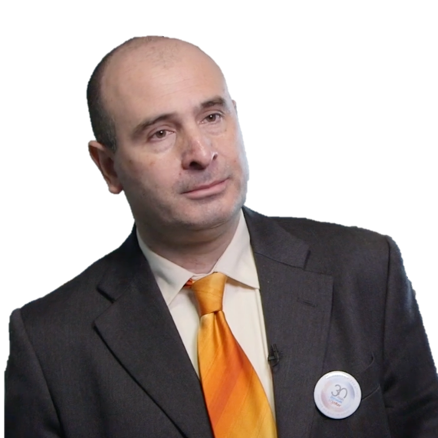
Joseph Stancanello, Elekta
Biography: Dr. Stancanello graduated with Ph.D. and Executive MBA degrees from Politecnico di Milano-School of Management, Italy, in the field of imaging and therapy. He specialized in driving strategic innovation at International Institute for Management Development in Lausanne, Switzerland. He has taught mathematical analysis at Padova University, Italy, and worked in the Medical Physics Department at Vicenza Hospital and at Bracco Imaging. Along his career, he has served in several roles in imaging companies, and at Siemens Headquarters in Germany as Principal Expert and Director of product portfolio in oncology and at GE Healthcare as Director of MRI research and applications and workflow. He is co-author of more than 100 abstracts, full papers and book chapters as well as many patents. He has been involved in many innovations such as MRI compressed sensing, zero TE imaging, quantitative Cone Beam CT imaging, AI applications for diagnostic and therapeutic applications in collaboration with IBM. In the last years, he has focused on nurturing AI companies and bringing to market several AI products for the prognosis of cancer evolution and prediction of therapeutic approaches, such as targeted therapy or immunotherapy as well as chemoradiotherapy (see https://www.ncbi.nlm.nih.gov/pubmed/28595812). He is currently serving as Global Vice-president of Clinical Applications at Elekta, with a focus on revolutionizing the current radiotherapy workflows also with the help of AI innovations.
Lecture: AI applications in clinical products: success, pitfalls and future overlook.
The lecture will focus on analyzing the key success factors of clinically marketed products as well as pitfalls associated to them such as regulatory clearance, market acceptance and risk mitigation. Based on the analysis in the key dimensions of mistake identification and correction capabilities of the AI generated results in clinical products, the different levels of market acceptance will be investigated: the results of such an analysis will be used to depict the future of AI applications in clinical practices, with the different time constants of acceptance as a function of the level of the aforementioned dimensions.
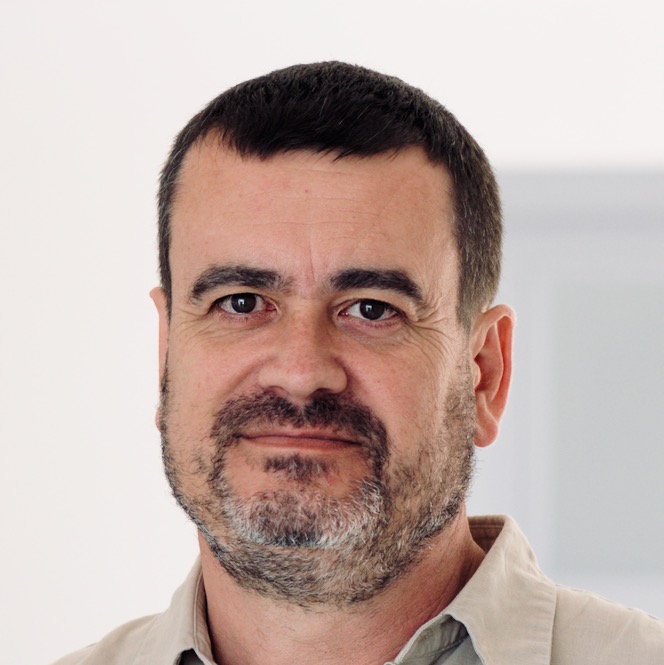
Carles Sierra, Artificial Intelligence Research Institute
Biography: Carles Sierra is the Director of the Artificial Intelligence Research Institute (IIIA) of the Spanish National Research Council (CSIC), located in Barcelona. He has contributed to Artificial Intelligence research since 1985, specialising in Knowledge Representation, Auctions, Electronic Institutions, Autonomous Agents, Multiagent Systems, and Agreement Technologies. He has served on the editorial boards of several prestigious journals, including “Artificial Intelligence” (AIJ) and “Journal of Artificial Intelligence Research” (JAIR), two of the leading generalist AI journals. Additionally, he was the Editor-in-Chief of “Autonomous Agents and Multi-Agent Systems” (JAAMAS), a journal dedicated to research on autonomous agents. Carles Sierra played a key role in organizing IJCAI, the premier international AI conference, in 2011 in Barcelona and served as the President of the IJCAI Program Committee in 2017 in Melbourne. He is a Fellow of EurAI, the European Association for Artificial Intelligence, where he also served as President from 2020 to 2024. In recognition of his contributions to the field, he was awarded the ACM/SIGAI Autonomous Agents Research Award in 2019.
Lecture: From Negotiation to Social Intelligence: A Journey Through Multiagent Systems
Multiagent systems (MAS) offer a powerful paradigm for designing intelligent systems composed of interacting autonomous agents. Over the years, my work has explored how individual agency can scale into complex, socially intelligent behaviour through negotiation, coordination, and reasoning about others. In this talk, I will trace key developments in MAS through the lens of my research—from foundational contributions in automated negotiation and computational argumentation to recent models that integrate the Theory of Mind to enable more strategic and adaptive agent interactions. I will discuss the evolution of agent architectures, such as the TomAbd model, which extends BDI reasoning with abductive capabilities to explain and predict others’ behaviours. I will also highlight applications of MAS in socially relevant domains, including aporophobia modelling for public policy, and reflect on how value-aligned multiagent reasoning can support trustworthy AI. By bringing together logic-based models, social awareness, and strategic interaction, this talk aims to illustrate the critical role of MAS in shaping both the theoretical foundations and societal applications of AI.
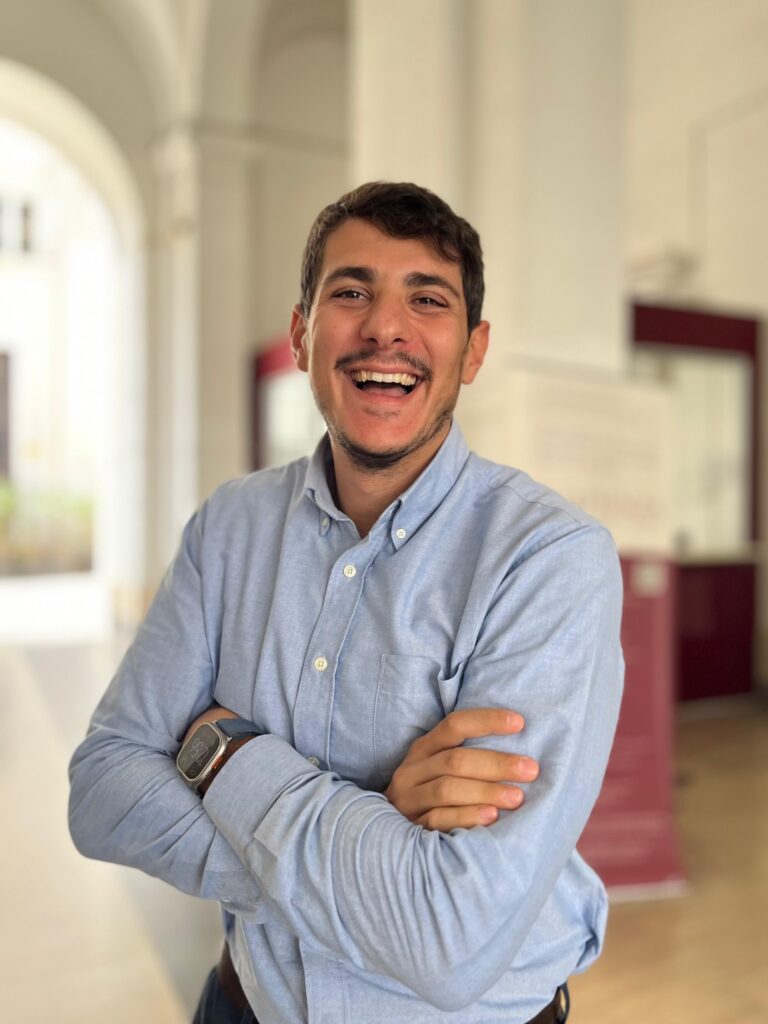
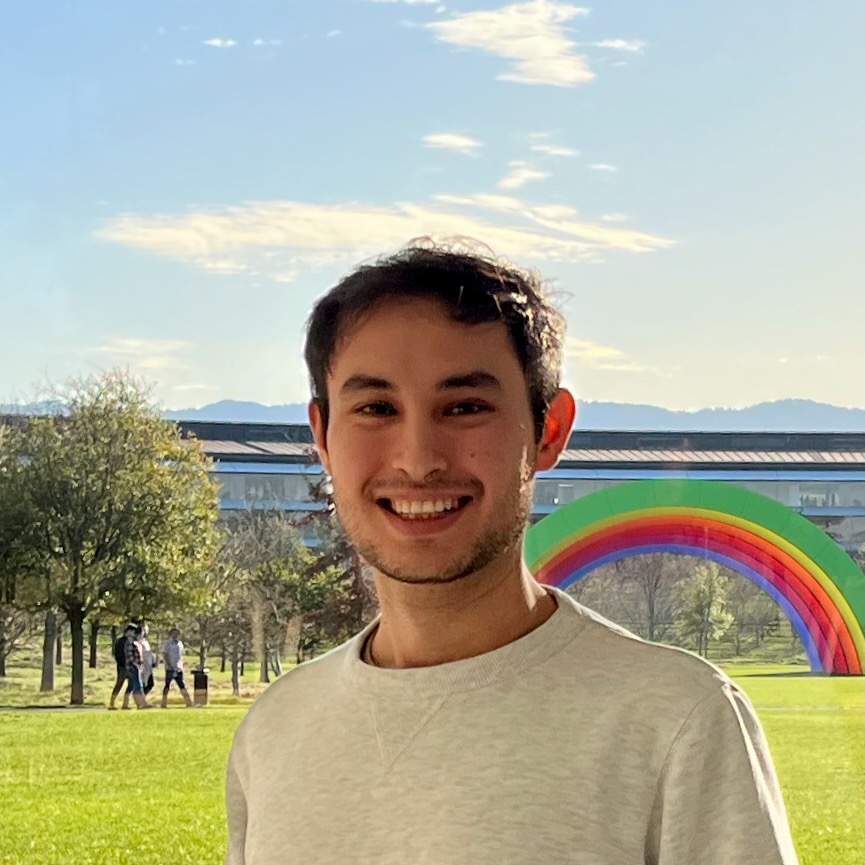
Edoardo Barba, Sapienza University of Rome
Biography: Edoardo Barba is an Assistant Professor in the Department of Computer, Control and Management Engineering (DIAG) at Sapienza University of Rome, where he collaborates with the Sapienza NLP Group under the supervision of Prof. Roberto Navigli. He earned his Ph.D. in Computer Science in 2023 with a dissertation titled “Descriptive Modeling: Capturing Semantics in Neural Models via Natural Language Descriptions.” His research focuses on semantic lexical tasks—such as Entity Linking and Word Sense Disambiguation—and on applying descriptive modeling techniques to Language Modeling, Semantic Role Labeling, and Machine Translation. Beyond academia, Edoardo is the co‑founder of Litus AI, a Rome‑based startup specializing in Natural Language and Speech Processing. In his free time, he enjoys playing padel and immersing himself in video games, with a particular fondness for World of Warcraft.
Simone Conia, Sapienza University of Rome
Biography: Simone Conia is an Assistant Professor at Sapienza University of Rome. His research focuses is on multilingual Natural Language Processing (NLP), with particular attention to structured knowledge representation, semantics, multilingual large language models, and text quality evaluation. Simone has co-authored papers in top-tier venues such as ACL, EMNLP, NAACL, and AAAI, and actively collaborates with several companies and institutions, including Apple and the Barcelona Supercomputing Center, among others.
Lecture: A Short and Intense Journey Through Large Language Models
In recent years, Large Language Models (LLMs) have emerged as transformative forces within the realm of Natural Language Processing (NLP). These models now serve as foundational pillars underpinning a multitude of NLP applications. Despite their pervasive use, a profound understanding of LLM behavior in diverse contexts and the effective control of such behavior remains an ongoing challenge. In this presentation, we will embark on a journey through the latest breakthroughs in this field, offering a concise overview. Subsequently, we will delve into the primary applications where LLMs wield significant influence, shedding light on the consequential implications of unreserved reliance on these models, particularly in high-stakes domains. Our discourse will culminate in a discussion of imperative measures aimed at enhancing the interpretability, explainability, and accountability of LLMs. Join us as we explore the uncharted territories of these monumental linguistic giants and chart the course towards a more comprehensible and responsible AI-driven future.